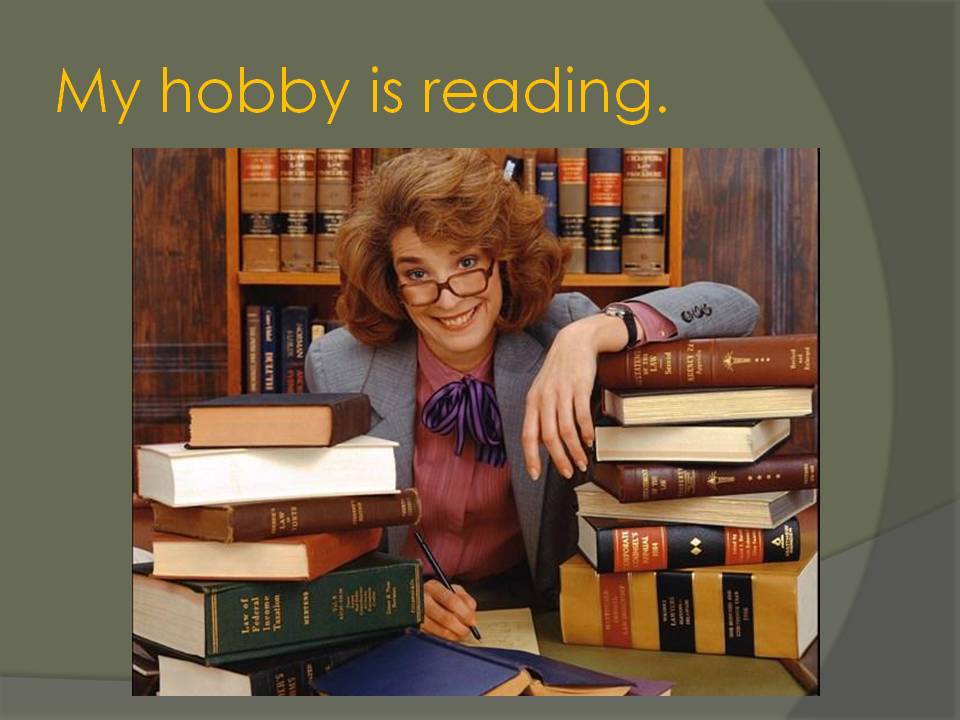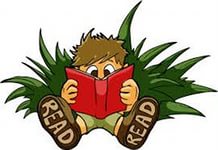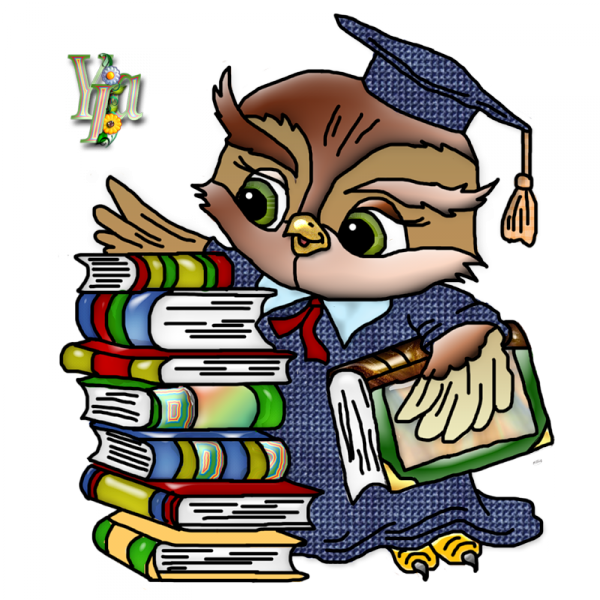Что поможет развить чтение на английском
Чтение на английском языке - прекрасная возможность совместить приятное с полезным. Ведь это одно из обязательных условий качественного и быстрого изучения языка.
Читайте книги на английском и вы узнаете новые слова, многочисленные фразовые единицы и увидите, как грамматика реализуется в живом языке.
Some practical tips...
-
Внимательно прочтите задание, это поможет лучше ориентироваться в тексте.
-
Прочтите весь текст целиком, чтобы понять основной смысл.
-
Не пытайтесь сэкономить время, читая только те части текста, которые соответствуют вопросу. Читайте весь текст целиком – это поможет понять контекст и ничего не упустить.
-
Не тратьте слишком много времени на один вопрос, вы сможете вернуться к нему позже.
-
Не волнуйтесь, если вы не знакомы с темой, которая обсуждается в тексте, все ответы приведены в тексте и вам не нужны никакие специальные знания, чтобы их найти.
-
Старайтесь извлечь смысл незнакомых слов из контекста.
-
Если это задания с пропусками — прочтите части текста до пропусков и после и постарайтесь догадаться, какая информация пропущена.
-
Попробуйте угадать ответ на вопрос, если вы его не знаете.
-
Старайтесь равномерно распределить свое время между всеми частями задания.
-
Чтобы подготовиться к экзамену, читайте как можно больше текстов разных стилей (см. статью «Готовимся к ЕГЭ по английскому языку»).
Site http://ege-english.ru/advice/strategy.php
Learn English through Reading

Read English texts as often as you can.
This could be the news, short stories or novels, texts from your textbook or ego4u. Choose an interesting text that is not too difficult for you (otherwise it wouldn’t be fun).
Don’t look up every word which is new to you – even without a dictionary you will understand a lot. Just concentrate on what you do understand and try to find out the rest by intelligent guessing. That works rather well, especially if you are interested in the topic. If you are a football fanatic for example, you probably won’t have problems understanding an English text about football. On the other hand, someone who is better in English than you but not interested in football will have more problems understanding the same text.
Do also watch the news in your native language and try to find English news to some of the topics. Even if you don't understand every word in the English text, you will get the message as you already know what the text is about.
Read between the lines.
(From http://www.ego4u.com)
Improve your English through Reading
(Josef Essberger)
Right now you are reading English.
That means that you are using your brain in a very active way.
Reading is a very active process.
It is true that the writer does a lot of work, but the reader also
has to work hard.
When you read a text, you have to do some or all of these:
-
imagine a scene in your head
-
understand clearly what the writer is trying to say
-
agree or disagree with the writer
Advantages of Reading
When you learn a language, listening, speaking and writing are important, but reading can also be very helpful. There are many advantages associated with reading, including:
Learning Vocabulary In Context
You will usually encounter new words when you read. If there are too many new words for you, then the level is too high and you should read something simpler. But if there are, say, a maximum of five new words per page, you will learn this vocabulary easily. You may not even need to use a dictionary because you can guess the meaning from the rest of the text (from the context). Not only do you learn new words, but you see them being used naturally.
A Model For Writing
When you read, it gives you a good example for writing. Texts that you read show you structures and expressions that you can use when you write.
Seeing "Correctly Structured" English
When people write, they usually use "correct" English with a proper grammatical structure. This is not always true when people speak. So, by reading you see and learn grammatical English naturally.
Working At Your Own Speed
You can read as fast or as slowly as you like. You can read ten pages in 30 minutes, or take one hour to explore just one page. It doesn't matter. The choice is yours. You cannot easily do this when speaking or listening. This is one of the big advantages of reading because different people work at different speeds.
Personal Interest
If you choose something to read that you like, it can actually be interesting and enjoyable. For example, if you like to read about football in your own language, why not read about football in English? You will get information about football and improve your English at the same time.
Five Tips for Reading
Tip #1
Try to read at the right level. Read something that you can (more or less) understand. If you need to stop every three words to look in a dictionary, it is not interesting for you and you will soon be discouraged.
Tip #2
Make a note of new vocabulary. If there are four or five new words on a page, write them in your vocabulary book. But you don't have to write them while you read. Instead, try to guess their meaning as you read; mark them with a pen; then come back when you have finished reading to check in a dictionary and add them to your vocabulary book.
Tip #3
Try to read regularly. For example, read for a short time once a day. Fifteen minutes every day is better than two hours every Sunday. Fix a time to read and keep to it. For example, you could read for fifteen minutes when you go to bed, or when you get up, or at lunchtime.
Tip #4
Be organised. Have everything ready:
-
something to read
-
a marker to highlight difficult words
-
a dictionary
-
your vocabulary book
-
a pen to write down the new words
![]()
Tip #5
Read what interests YOU. Choose a magazine or book about a subject that you like.
Things to Read
Newspapers
You can find English-language newspapers in all large cities around the world. Newspapers are interesting because they are about real life and the news. BUT they are not easy to read. Try reading newspapers if your level is intermediate or above.
Some British newspapers:
-
The Telegraph
-
The Times
-
The Independent
-
The Guardian
-
The Financial Times (business)
-
The Sunday Times
Some American newspapers:
-
The International Herald Tribune
-
The New York Times
-
The Wall Street Journal (business)
Magazines
Some magazines are published weekly, some monthly. You can find English-language magazines in many large cities around the world. If you cannot find the magazine you want in your town, you may be able to order it for delivery. Many magazines have pictures which can help your understanding. You will need an intermediate level for most magazines, but a pre-intermediate level may be ok for some magazines.
There are magazines on every subject:
-
Politics
-
Sport
-
The House
-
Cars
-
Music
-
Romance
-
Travel
-
Language
-
etc

Books
Books are divided mainly into:
-
Non-fiction (history, biography, travel, cooking etc)
-
Fiction (stories and novels)
Some books are easier to read than others. It often depends on the author. Agatha Christie, for example, wrote in an easier style and with simpler vocabulary than Stephen King. You can buy books in specialised English-language bookshops in large cities around the world. You may also be able to find some English-language books in libraries. And if you have a British Council in your city, you can borrow many English-language books from their library.
Short Stories
Short stories can be a good choice when learning a language because they are...short. It's like reading a whole book in a few pages. You have all the excitement of a story in a book, but you only have to read 5,000 or 10,000 words. So you can quite quickly finish the story and feel that you have achieved something. Short stories are published in magazines, in books of short stories, and on the Internet. You can also find short stories at EnglishClub.com English Reading.
Readers
Readers are books that are specially published to be easy to read. They are short and with simple vocabulary. They are usually available at different levels, so you should be able to find the right level for you. Many readers are stories by famous authors in simple form. This is an excellent way for you to start practising reading.
Cornflakes Packets
By "Cornflakes Packets", we mean any product you can buy that has English writing on or with it. If you buy a box of chocolates, or a new camera, why not read the description or instructions in English? There are many such examples, and they all give you an opportunity to read real English:
-
airline tickets
-
cans or packets of food
-
bottles of drink
-
tapes and CDs
-
user guides for videos, computers...
-
etc
Poetry
If you like poetry, try reading some English-language poems. They may not be easy to understand because of the style and vocabulary, but if you work at it you can usually get an idea - or a feeling - of what the poet is trying to say. You'll find some classic poems, with explanations of vocabulary, at EnglishClub.com English Reading.
Good luck with your reading. It will help you make a lot of Progress!
© 2000 Josef Essberger

![]()
Useful Site (practice different levels)
- Fiction. The Eserver Collection – короткие рассказы известных писателей придутся вам по душе.
- Literacynet.org – истории в разделах: adventure, business & economy, crime, culture & society, disasters, education, environment, health, politics, religion, science & technology.

Sites with tests
Pre-Int. Reading Comprehension Tests



